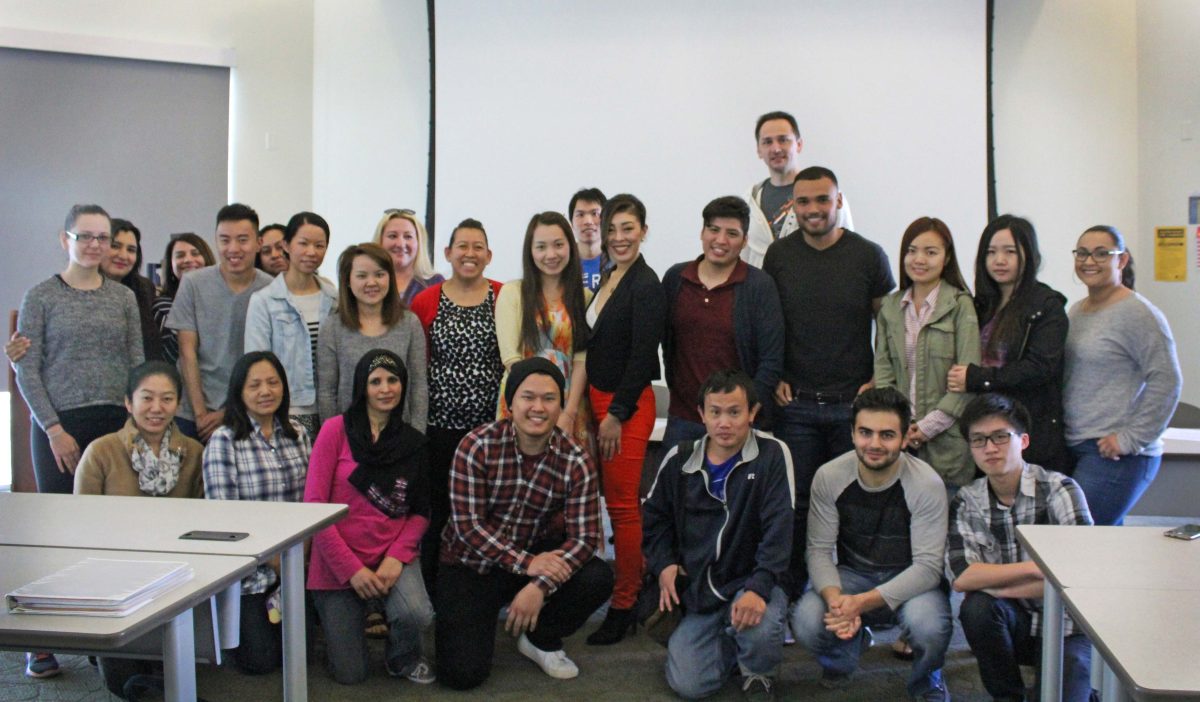No shame in a cultural name
Professor Trang Abeid with her English as a second language students after speeches were given.
As part of of Asian-Pacific American Heritage week, held earlier this month, English as a Second Language instructor Trang Abeid hosted a student panel for students to discuss the meaning of their cultural names.
All of the students present wrote an essay that described experiences and challenges they’ve faced.
“Every one of us has a little bit of story to share about our name because it makes us who we are today,” said Daniel Danielyan, 22, an engineering major. “Maybe for others your name doesn’t mean anything, but it’s for you, it’s a special name. Nobody should be shy about what their name is.”
The problem that Danielyan, who emigrated from Armenia, faced was culture shock of women allowed to have a man’s name in America. In Danielyan’s culture, his name is pronounced like the name Danielle. He discovered this when he first started college during a class roll call.
Speakers approached the podium to share memorable experiences. For most speakers, a smile brightened up their faces as a sign of relief.
“I was so nervous,” said Hitomi Kitamura, 29, a physical therapy and kinesiology major. “This happens pretty often here [in America]. My name makes introduction[s] difficult.”
Kitamura had contemplated whether or not she should adopt an American name so introductions would be easier, but after discovering the meaning of her name, she said she decided to scrapped the idea.
“The meaning of my name [is] completely different in English from the meaning in Japanese,” Kitamura said. “In Japanese it is more meaningful and encourages me to live out the name, [which means] benevolent and beautiful.”
Abeid said she could relate with her students’ thoughts and feelings about their names.
Abeid said that she is first generation Vietnamese-American and was gifted the name Trang, which means serious and intelligent.
“People told me to change my name because it was hard to pronounce,” said Abeid. “It does stand out, but sometimes not in a positive way.”
Abeid mentioned the prejudice faced as an Asian-American with a non-Western name.
“I have been judged by name, because they assume you don’t speak English very well and that you don’t write or study very well,” Abeid said.
Abeid said she believes ESL has a really negative stigma, and she said that she wants her students to recognize after giving their speech that “ESL students can produce something publishable.”
Some of the students are timid in class due to the fear of not being understood because they speak broken English, said Abeid.
“It’s very hard for students to understand that there isn’t only one answer, or method” to achieve this “perfect essay,” she said.
Abeid said that she had confidence in her students’ ability to progress and surpass feeling ashamed or embarrassed in their fluency.
“When I put my name on the board, it allows me to help the students see that no matter what background [they come from], they could be standing in the same place,” Abeid said.

